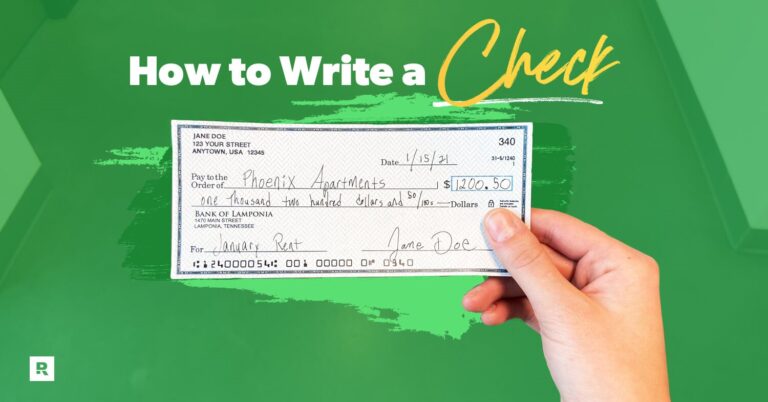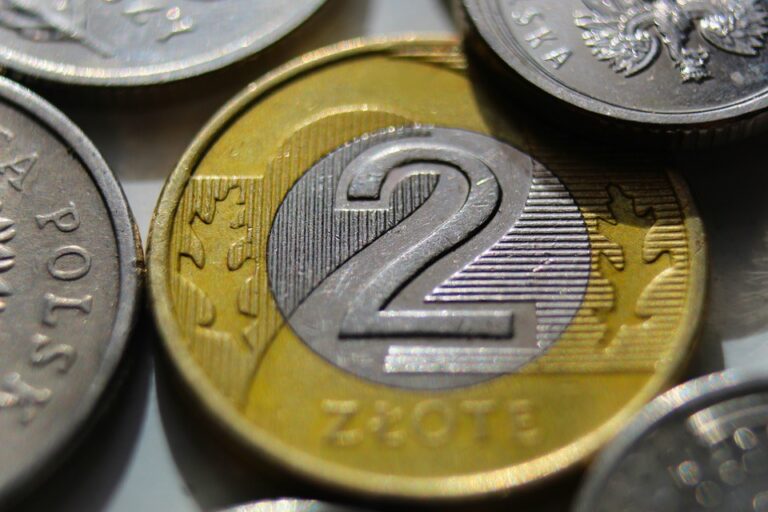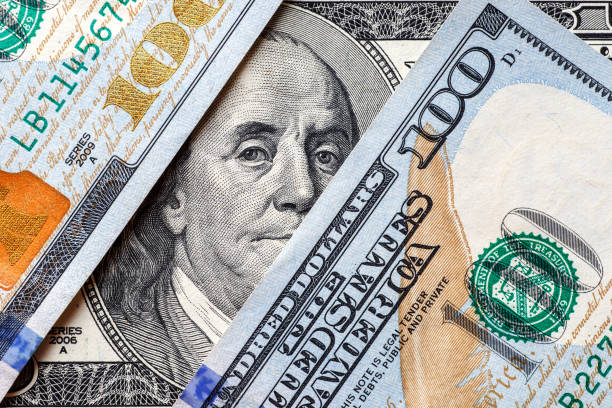Last updated Jan. 25, 2023 by Peter Jakes

Paying off your student loans early may seem like no big deal if you’ve lined up long-term debts and have money to spare. In spite of the lower interest rates on student loans, paying your debts off early may prevent you from achieving other financial objectives, such as purchasing your own home.
According to Forbes Student Loans Statistics of 2022, the average student loan debt at for-profit colleges and universities is $43,900. This is based on the average amount of borrowing to obtain a bachelor’s degree. Approximately 16% of student loan borrowers are under the age of 25. Approximately 65% of student loan borrowers are between 25 and 50 years old.
Consider your overall financial situation and long-term goals before making a decision to pay off your student loans. Paying off student loans early is a viable option for some, but there are drawbacks as well. We have outlined the 15 benefits of paying off students loan early in this article.

I remember, as my career progressed and I started earning more money, all I thought of was using the money I was making to pay off my student loans. Instead of getting a bigger house, I stayed back with my parents.
It wasn’t so comfortable, but it was better than living each day of my life with my student loans hanging all over my neck. No one needed to tell me that a new car wasn’t necessary. No matter the temptation, I did shop for those designers I so wanted. Also, I didn’t get a new phone.
From my experience, the extra money spent isn’t essential, and you can live without it for a while longer. It’s not the right time to make a change in your way of life. You can do that later when you don’t owe anyone anything! Take advantage of the extra money you’ll have to pay off your student loans now.
Below are the 15 Benefits of paying off students Loan Early
1. Paying Off Students Loan Early Helps With Your Debt-to-Income Ratio

The debt-to-income (DTI) ratio calculates how high your monthly debt payments are in relation to your monthly income.
Paying off your student loans can help decrease your DTI ratio. Paying off your student loans not only eliminates the burden of monthly payments, but it also makes it easier for you to achieve other financial targets.
A lower debt-to-income ratio is also important if you plan to apply for new credit, especially a mortgage. Most lenders will view a lower DTI ratio as a sign that you can afford to take on and responsibly repay new debt.
You’ll usually need a DTI under 43% to qualify for a mortgage, for example, and even lower DTIs of 30% to 35% to truly show that your debt is at a manageable level.
2. Paying Off Student Loans Early Helps Your Credit
Paying off student loans early can have a negative impact on your credit score if you’re trying to build it. Is it bad for your credit score if you pay off a loan early?
Debt repayment is a beneficial move, so don’t fret about it. Your score may initially drop, but it will eventually rise again. Paying off student loans early can temporarily lower your credit score.
Once a loan has been fully paid, the lender will notify the credit bureaus that you have completed the repayment process early. If a lender sees this on your credit report, it indicates that you kept your end of the bargain and paid back your loan.
Reducing your debt payment burden to a more manageable proportion of your income is another benefit of paying off your debts. In the long run, all of this will be beneficial to your credit history.
Credit Mix is a factor in your credit score that accounts for 10% of your score. It is preferable for lenders to see that you have both rotating and fixed-term loans in your financial portfolio.
Paying off your student loans may cause a small dip in your credit score if you don’t have any other installment loans, like a personal loan, house or car loan.
However, since the credit mix is only a small portion of your score, the decrease will be negligible. With time, your credit score will improve if you pay all of your other bills timely and maintain your credit card balances at a low.
Can You Pay Off a credit card with another Credit card? Find out here.
3. It’s Costing You

One of the 15 benefits of paying off students loan early is that students loan are costing you more than you think.
Have you ever considered how much you are losing monthly due to your student loan payment and interest, even if you reap the rewards of the student loan tax break for a short period?
The interest you pay on your student loans is calculated as a percentage of the principal you owe. Even though your balance is reduced and you make additional payments, your interest rate will be reduced as well.
It is possible to pay off your student loans early and save money in the long run, as long as you stick to your routine payment plan.
Your student loan payment may consume a significant portion of your income if you owe a lot of money. By eliminating your student loan debt, you’ll have more money in the bank.
Your other financial goals, like saving for a deposit for a house, taking a vacation, building an investment portfolio, or starting your own business will also be more easily achieved.
4. Get Rid of Financial Worry

Paying off students loan early helps you get rid of unnecessary financial worries. Underestimation of the stress caused by student loans prevents people from achieving financial security.
In research by the Pew Research Center, a third of recent college graduates aged 25 to 39 say they are financially comfortable, compared to the 51 percent of recent college graduates in the same age group who don’t have any lined-up student loans.
Minimize your financial anxiety by making progress on your student loans. It’s still possible to save money even if you’re approaching the end of your repayment plan by paying off debt.
5. Frees Up Money to Pay Down Other Debt:
Not having a monthly student loan payment can put more money back into your budget that you could apply to other debts.
If you have credit cards or a car loan payment, for example, you could use the money you’d been earmarking for student loan payoff to erase those debts faster. That could help you save even more money on interest charges.
Check out this article: 3 Budget Categories You Need to Stick to Your Simple Budget
6. It’s Cheaper to Pay Student Loans Off Early

It’s a good idea to pay off your student loans as soon as possible in order to avoid paying interest. Even though interest rates on student loans may be lesser, the longer you delay the repayment term, the more interest you will accrue to pay out of your pocket.
Reducing the time it takes to pay off your student loans by even a few months or years can save you a considerable amount of money you didn’t even know.
7. It Can Help With Obtaining Other Funding
One of the 15 benefits of paying off students loan is that it gives you access to more funding. Having less money going into debt each month can help you lower your debt-to-income ratio if you pay off your student loans early as we said before.
It doesn’t stop at that, it widens your other funding opportunities. Once your paid-off loans appear on your credit report, you may see an increase in your credit score. When you’re ready to borrow again, having a lower credit utilization ratio may make it easier to get approved for new loans or credit lines.
Even if you don’t plan on paying off your student loans in full, refinancing them can save you money in the long run.
Related article: See the Best Personal Loans with Low Interest
8. Helps With Your Long Term Goals

Students loan have a way of clogging your view of your long-term goals. In addition to lowering your monthly debt payments and debt-to-income ratio, you’ll earn interest-free returns on the money you save and be able to start saving for retirement with those payments.
A major motivation for paying off student loans early is to alleviate the pressure that comes from having to deal with the financial burden of student debt.
A long-term financial plan that enables you to save money while paying off your student loans may be possible if you’re willing to take on some debt with low-interest rates. Savings from early loan repayment can be put to use in some other place, such as a retirement fund.
In some cases, if your debt interest rate is lower than the average return on the stock market, you may be better off investing that cash. You must also think about the dangers of investing and seek the assistance of a qualified financial advisor or check out investing apps.
9. Budget More Comfortably
Paying off student loans early also helps you budget more comfortably. It also reduces the likelihood of bankruptcy or insolvency. Before I repaid my student loan, I constantly had this fear of waking up one day and becoming completely bankrupt because I’m in debt. Paying it off early helped me a great deal.
When your student loans are paid off, you will be in a much better position to spend your savings on any fun purchases or dream vacations you’ve been putting off for so long. Remember my designer shoes? And the fact that I wanted to spend 3 nights in Paris? I finally had the courage and wherewithal to plan for such things.

Another factor to consider: There is no telling when the next financial crisis will occur. After graduation, you may face a medical emergency or have a difficult time finding employment.
The fact remains that you must still pay back your loan, regardless of your personal situation. The system does not care. If you fail to pay your bills on time, you will be hit with additional penalties, which will only worsen your financial situation and put you at risk of bankruptcy.
Trimming your student loan timeline will not only free up money and breathing space in your budget, it will also reduce the likelihood that any prospective disaster will completely sidetrack you.
Read a related article: Learn how to Make a Personal Budget in 6 Easy Steps
10. Gain Peace of Mind
One of the 15 benefits of paying off students loan early is the peace of mind it gives you. Peace is so underrated because a lot of people go about their daily business thinking they are strong. Any day, they open up about their struggles, you’ll be in for a shocker. It’s easy to be all over LinkedIn with pictures, but beneath that facade is unrest caused by numerous student debts.
If carrying debt gives you a knot in your stomach, you might find greater benefits in paying off your student loans quickly. The financial perks aren’t the only benefits of paying student loans early. Student debt can be a great source of stress for young adults getting started in life.
Reducing the amount of money owed can bring peace of mind as you will have more confidence in your financial security and your ability to meet your personal and professional goals
11. Start Building Wealth
Among the 15 benefits of paying off students loan early is that it helps you start building wealth early. A better financial future awaits those who begin saving for retirement earlier rather than later. The sooner you pay off your debts, the more money you’ll have available to invest. If you’ve got a loan, pay it off and start investing in yourself instead of paying it off.
12. Paying Off Student Loans Helps you Free Up Your Money To Spend on Fun
When it comes to spending a particular amount of hundreds of dollars a month, you’ll have no shortage of alternatives. Maybe you’ve got a secret Teflar bags fantasy and you’re eyeing a limited-edition piece. Another option is to put the money aside for a more significant purchase, such as a vacation or a brand-new car. Whatever your goals in life are, paying off your student loan debt early may provide you with the resources you need to realize them.
13. Paying Off Student Loans Early Helps You Save for Retirement and Get Your Employer Match
Saving for retirement is easy to shift until later in life, but it isn’t as it sounds. In the long run, you’ll be making more money and owing less in student loan debt when you’re in the workforce.
However, consider the following: If you invest your money in the stock market at an annual rate of 7 percent while you’re still in your 20s, every dollar you save will be worth $15 when you retire. Saving now will allow you to save far less money than if you put it off.
Related article: Do you know How Much Money is Enough For your Retirement?

Put money aside from each paycheck so that you can take advantage of the match your employer will give you on your 401(k). There’s no cost to you and it reduces the amount of money you’ll have to put away to enjoy a comfortable retirement.
Think about maxing out your Individual Retirement Account (IRA)—currently $6,000 per year—if you don’t have an employer-sponsored 401(k). Contributing $500 a month or all at once will accomplish this goal.
14. Build an Emergency Fund
The earlier you begin saving for unexpected expenses, the better off you’ll be financially in the long run. When it comes to building your finances, an emergency fund has always been critical.
However, chances are 2020 has shown you why it’s an especially critical first step. A malicious inferno, political chaos, or a life-threatening pandemic can have a devastating effect on your income.
Instead of putting off student loan payments, prioritize making them as quickly. This will help you better organize your finances and begin saving for unexpected expenses. You won’t be able to get your money back if you run into financial difficulties after making that payment to your lender.
15. The Student Loan Forgiveness You Are Waiting for May Never Come.
President Joe Biden announced the historic student loan forgiveness for millions of student loan borrowers. In spite of the uncertainty, it’s possible that Biden will decide to cancel up to $10,000 or more for millions of people who have taken out student loans.
You should not stop paying your student loans and hope that your student loans will be forgiven. This is regardless of the possibility of debt cancellation. A budget and payment plan should be in place if cancellation is no longer an option.
Also, note the amount of money you’ll have to pay each month if some debt is wiped out of your life. You should also consider how you would use any additional funds that would be released because of the cancellation.
Next steps after Paying off Students Loan
Paying off student loans early can be liberating, but only if it’s the right decision for your situation. As a result, interest rates on student loans tend to be quite low. Paying off the highest-interest debts first is generally a good idea.
We also don’t recommend sacrificing your retirement or emergency savings to pay off your student loans. It’s possible to save money by paying off your student loans sooner rather than later. The latter is especially important if you already have a solid financial plan in place.
Bottom Line

We hope that these 15 benefits of paying off student loans early are enough to make you start paying it now. You can save a lot of money, decrease your stress, and strengthen your debt-to-income ratio by paying off your student loans early. Paying off your loans early may not be the best option for everyone, so think about your finances and your long-term goals before making this decision.
If your student has a low debt-to-income ratio, they can get better interest rates on mortgages and credit cards by taking out a bigger loan. Moreover, they intend to start over after graduation. Because they’ve paid off their loan, they have lesser financial and mental obligations that can strain them.
As such, should you encourage your teen to pay off their student loans early, or wait until they have graduated? In a word, yes. Besides, no one has ever regretted paying off their debts.
How to Set Up Automatic Savings and Put Your Savings Money on Autopilot
Frequently Asked Questions (FAQs)
Q: Is there a penalty for paying off student loans early?
Students who pay off their loans early will not face any penalties. Also, they should be able to do so at any point in time. For more information on prepayment, consult the terms of your loan agreement.
Q: Will paying off my student loans help my credit?
You may see a dip in your credit score due to paying off your student loans at first. Consequently, other credit accounts, such as your credit cards, may receive more weight in your credit mix. After a few months, your score will rebound and may even improve so long you continue to practice good credit habits.
Q: When do you start paying off student loans?
It depends on whether it is a federal or private student loan. Six months after you graduate, drop below half-time enrollment, or unenroll, you must begin repaying your federal student loans.
It’s possible that you’ll have to repay your private student loans while you’re enrolled in school. Your loan agreement will always specify such terms.









